Hi-
I’m so sorry you’re having such a time trying to help this cat. Has your vet ruled out everything else as far as a diagnosis? Perhaps there is something else that is worsening her initial issue? Have you tried feeding more meals throughout the day, but smaller portions? (A little at a time)
Our 3 year old cat had a urinary blockage, late at night. We drove him to an emergency animal clinic, about an hour away. They diagnosed, treated, had him for almost 5 days. The bill was $2500, and they strongly recommended a $3000 PU surgery. We couldn’t afford that, so they transferred him to another vet that could do the surgury for $1600. They were not convinced that he needed the PU. They treated him, about 4 days, and he seemed to be on the mend. Bill was $640, which they let us split into 3 payments. After being home for a day or two, he obstructed again. We took him to our local vet. After examining him, it was discovered that he had a large chunk of plastic stuck in his penis. Exploratory surgery was done to remove it. Its presence has caused much trauma to the ureathra, causing blockage twice more since (scar tissue). So now he’s at our vet, unblocked with a catheter. They say a PU is his only option. Our vet isnt comfortable doing it, and will be contacting the 2nd vet that treated our kitty and see if they can. Costs are now an issue, as we’re paying the first vet(maxed care credit), 2nd vet (payments, $400 left), and 3rd vet( ours, payments, $221 every two weeks) . No idea how to get the little guy the PU surgery. 🙁
Comments
I have a 12 year old cat who vomits almost every day since I adopted her 5 months ago. She has been to the vet several times and a sonogram revealed she has chronic pancreatitis. They didn’t see any other issues. She was eating canned Fancy Feast with water, but now I have her on NomNomNow because I thought fresh food would help her. But she is still vomiting. It’s usually food at first but then she moves spots and vomits bile or saliva/foam. Once or twice the saliva looked bloody (took her to the vet right after). The vet had her on vitamin E, pepcid, and a round of antibiotics. Nothing helped. She has never been very playful but she is behaving relatively normally, eats, grooms, poops, etc. I don’t know what else to do! Thanks for any advice!
Comments
I have a Persian cat 7 yrs she isn’t breathing that well. I personally think she is stuffed up or has something in her airway causing her to breathing problems. I’ve spent $2000 on testing with no results and I can’t continue to go bankrupt to fix her. Is there anyone in the San Tan Valley area who will give her a cat scan for reasonable price and cure my cat. Thanks.
Comments
I have a Persian cat 7 yrs she isn’t breathing that well. I personally think she is stuffed up or has something in her airway causing her to breathing problems. I’ve spent $2000 on testing with no results and I can’t continue to go bankrupt to fix her. Is there anyone in the San Tan Valley area who will give her a cat scan for reasonable price and cure my cat. Thanks.
Comments
Just noticed fleas on both of my cats.. what is the safest treatment to use?










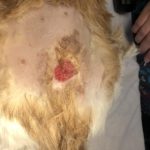
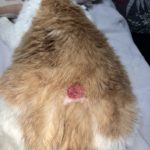

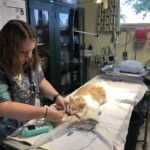



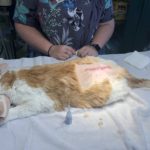


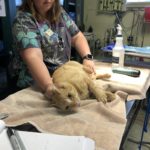


I’m so sorry that you are dealing with this. Any idea 1-how the plastic got there? 2- how it wasn’t noticed before as the cat was seen multiple times? I would want to know. It seems strange that it would go unnoticed…. as far as the surgery. I’m hoping that given your current situation with the vet(s) that they might be able to either direct you towards someone or some group that would be able to help with the cost, as well as off you payment installments on good faith as you are currently paying already. Perhaps your local humane society would also be able to assist you or help you find someone who can.
Hello Sarah!
Good question, regarding the plastic. The first vet put a catheter in, twice. 2nd time was difficult, which is why they recommended the PU surgery. 2nd vet didn’t place a catheter, as he still had the 2nd catheter in from the first vet. The plastic was noticed by the third vet(ours). I was told there is no way this piece could have gotten into the ureathra any other way, other then when a catheter was put in. My guess is it happened at the first vet, when they had difficulty. So as of right now, the 2nd vet has agreed to do the surgery tomorrow, and will take payments. Yay! I do want to know where the plastic came from, but my priority is getting the kitty healthy.
Just an update! Things are going well! Kitty is at the vet for a PU surgury. Vet is working with us on payments. Waiting for a call back from the first vet’s practice manager. Hoping they can shed some light on that piece of plastic.
Ia so glad that things are working out????????????
Hello!
Please (please!!) add your story to our storylines section. We are doing a whole long list of patients cases about just this subject and it would be so helpful to others (and me!) to hear about your cats case. If possible it should be w entered as desperate stories. One about the blocking episodes and the other about the pu surgery. And please include prices. We are trying so hard to save these cats by sharing stories of the successfully treated cases. Please keep us posted. Thank you!